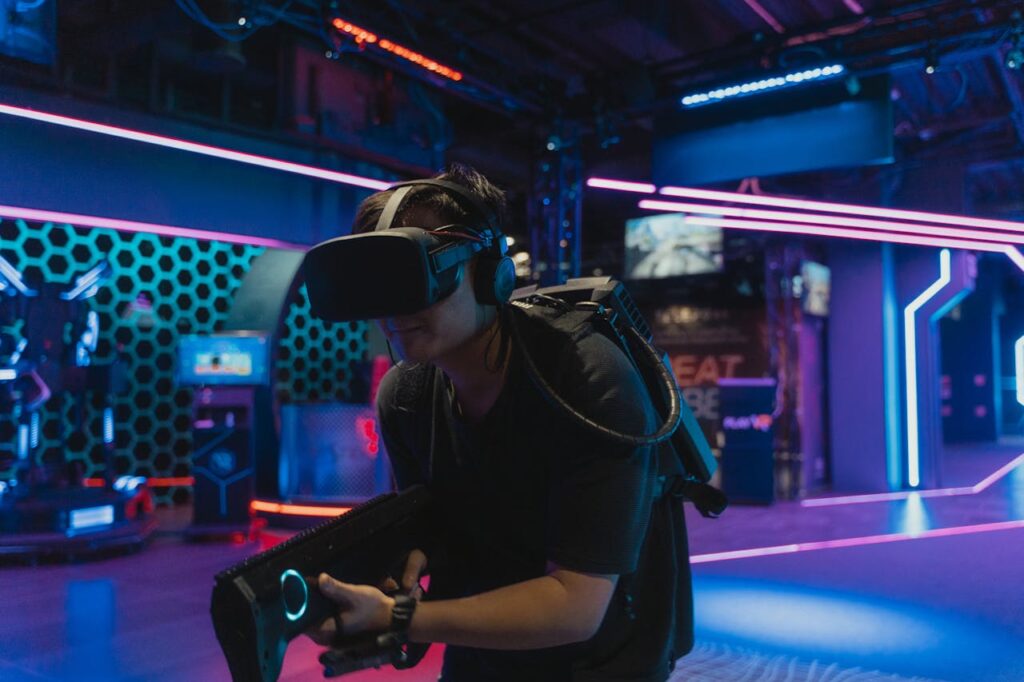The gaming industry is at a crossroads, marked by rapid growth and evolving consumer expectations. As competition intensifies, gaming companies must find new ways to connect with players, build brand loyalty, and foster engagement. One of the most effective strategies emerging in this landscape is the recognition of players as partners in the casino digital marketing process. By actively listening to their community, brands can create marketing initiatives that resonate deeply, driving both engagement and long-term loyalty.
Transforming Players into Brand Advocates
The shift towards viewing players as partners is rooted in the understanding that engaged communities are powerful marketing assets. When players feel valued and involved, they are more likely to become passionate advocates for the brand. This phenomenon is particularly pronounced in gaming, where communities thrive on shared experiences and collective enthusiasm.
Brands that prioritize player feedback and involvement can cultivate a loyal following. For instance, consider the success of fan-driven campaigns in the gaming space. When developers invite players to contribute ideas for game features, characters, or storylines, it not only enhances the game’s quality but also fosters a sense of ownership among the community. Players are more inclined to promote a game they feel connected to, amplifying organic word-of-mouth marketing.
Utilizing Feedback Loops for Continuous Improvement
Listening to players creates a continuous feedback loop that benefits both developers and consumers. Gaming companies that actively solicit and act upon player input can adapt their marketing strategies and game designs in real-time, resulting in products that better meet player expectations.
For example, the use of surveys and polls is an effective way to gather insights from the community. These tools allow brands to gauge player sentiment on various aspects of the game, such as mechanics, graphics, and storylines. By incorporating this feedback into marketing campaigns and game updates, developers can demonstrate their commitment to player satisfaction.
Moreover, platforms like Twitch and YouTube provide invaluable opportunities for brands to engage with players. By monitoring content created by players, such as live streams and gameplay videos, companies can gain insights into player preferences and behaviors. This information can inform marketing strategies, enabling brands to target specific segments with tailored messages.
Community-Centric Marketing Initiatives
As gaming companies shift their focus toward community engagement, gambling digital marketing initiatives that prioritize player interaction are gaining traction. One prominent trend is the rise of community-driven events and competitions. These initiatives not only engage players but also create memorable experiences that enhance brand loyalty.
For instance, hosting tournaments or esports events provides players with opportunities to showcase their skills and connect with fellow enthusiasts. By sponsoring or organizing these events, brands can reinforce their presence in the community while fostering a sense of camaraderie among players. This approach also generates valuable content for marketing campaigns, as players share their experiences on social media and streaming platforms.
Additionally, brands can leverage user-generated content to amplify their marketing efforts. Encouraging players to create and share their own content—whether through fan art, videos, or gameplay highlights—creates an authentic connection between the brand and its community. By featuring this content in marketing materials, companies can showcase the creativity and passion of their players, further strengthening community ties.
The Importance of Inclusivity and Diversity
As the gaming community becomes increasingly diverse, brands must prioritize inclusivity in their marketing strategies. Listening to players means acknowledging and celebrating the diverse backgrounds and perspectives that make up the gaming community. Companies that actively promote inclusivity and representation can resonate more deeply with their audiences.
Inclusive marketing initiatives can take various forms, from featuring diverse characters in games to highlighting stories from underrepresented voices in the gaming community. By showcasing a commitment to diversity, brands can foster a sense of belonging among players, encouraging them to engage with the brand on a deeper level.
Furthermore, inclusivity extends beyond representation in content; it also encompasses accessibility. Making games more accessible to players with disabilities is not only a moral imperative but also a smart marketing strategy. Brands that prioritize accessibility can tap into a broader audience and demonstrate their dedication to creating a welcoming environment for all players.
Embracing Transparency and Authenticity
In a world where consumers are increasingly skeptical of marketing messages, transparency and authenticity have become paramount. Gaming companies that listen to their players must also communicate openly and honestly about their practices and intentions. This approach builds trust and credibility, which are essential for fostering long-term loyalty.
For instance, when a game experiences setbacks or controversies, addressing these issues transparently can help mitigate backlash. By communicating openly about challenges and the steps being taken to address them, brands can demonstrate their commitment to player satisfaction and accountability.
Authenticity also extends to marketing campaigns. Players are more likely to engage with brands that showcase genuine passion for gaming and a commitment to their community. By highlighting the stories and experiences of real players, companies can create relatable and impactful marketing messages that resonate with their audience.
As the gaming industry continues to evolve, the importance of listening to players cannot be overstated. By embracing a collaborative approach to marketing, companies can transform players into partners, creating authentic connections that drive engagement and loyalty. Through community-centric initiatives, transparency, inclusivity, and continuous feedback loops, brands can develop marketing strategies that resonate deeply with their audience.
The future of gaming marketing lies in the hands of the players. By actively listening to their community, brands can create products and experiences that not only meet expectations but exceed them. In this new era, successful marketing will be defined by collaboration, authenticity, and a genuine commitment to player satisfaction. Embracing these principles will pave the way for a thriving and engaged gaming community—one that champions the brands that truly listen.
